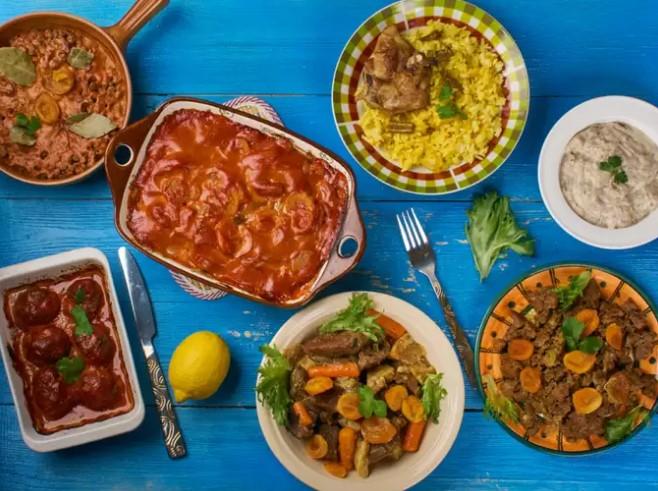From indigenous peoples like the Khoisan, who have been foraging for over 300 species of edible food plants for centuries, to the encounters with Bantu pastoralists that brought cultivated crops and domestic cattle into the mix, South African cuisine is a fusion of traditional techniques and modern influences.
The rooibos shrub legume, in particular, holds a special place in South African cuisine, as its culinary value continues to exert a salient influence on the local food scene. With every bite, you can taste the history, culture, and vibrant flavors that make South African cuisine truly unique.
In South Africa, eating is not just about sustenance; it is an experience that encompasses both the nourishment of the body and the celebration of diverse culinary traditions.
The country’s cuisine showcases a wide range of indigenous ingredients, techniques, and flavors that have been passed down through generations. From the earthy flavors of wild mushrooms and game meat to the vibrant spices and aromatic herbs that bring dishes to life, South African cuisine is a celebration of the country’s natural abundance.
One cannot talk about South African cuisine without mentioning the influence of the Khoisan, who have played a significant role in shaping the culinary landscape of the country. For the Khoisan, food is not just a means of survival; it is a way of life.
Their deep knowledge of the land and its resources has allowed them to forage for a variety of edible food plants, including the revered rooibos shrub legume. This humble plant has become a staple in South African cuisine, appreciated not only for its distinct flavor but also for its health benefits.
As South Africa’s history unfolded, encounters with Bantu pastoralists introduced new elements to the local food culture. Cultivated crops and domestic cattle became integral to the South African diet, complementing the traditional Khoisan techniques of meat preservation. These interactions between different communities and their culinary traditions have resulted in a diverse and dynamic cuisine that is constantly evolving.
In every dish, South African cuisine tells a story – a story of resilience, adaptation, and the coming together of different cultures. It is a cuisine that embraces the old and the new, the traditional and the innovative.









